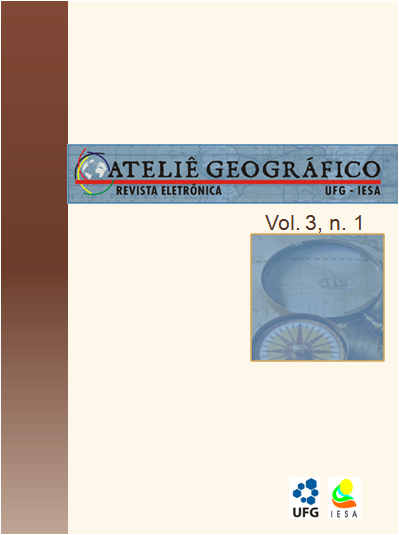PATRIMONIAL EDUCATION: A RESOURCE FOR CULTURAL LITERACY IN ELEMENTARY SCHOOL
DOI:
https://doi.org/10.5216/ag.v3i1.6256Abstract
Patrimonial Education is an interdisciplinary teaching proposal focused on relevant issues to the environmental / culture heritage. It may be applied in communities near recognized heritage, such as the ones around the archaeological sites, as well as at schools, with the aim of raising awareness about the importance of recognition, appreciation and conservation of the region heritage. Most communities ignore historical and archaeological wealth in its territory. This paper highlights the Patrimonial Education relevance and its possibilities as an activity to stimulate scientific curiosity about the origins of regional culture. As an alternative to the encouragement of cultural literacy in elementary school, we presented here the "Time-box" - a teachinglearning resource appropriate to work concepts about archeology at the elementary school. Key words: Patrimony Education; cultural Archaeology; didactic-pedagogic material.Downloads
Download data is not yet available.
Downloads
Published
2009-05-14
How to Cite
PACHECO, Ilza Alves; VARGAS, Icléia Albuquerque de. PATRIMONIAL EDUCATION: A RESOURCE FOR CULTURAL LITERACY IN ELEMENTARY SCHOOL. Ateliê Geográfico Journal, Goiânia, v. 3, n. 1, p. 92–106, 2009. DOI: 10.5216/ag.v3i1.6256. Disponível em: https://revistas.ufg.br/atelie/article/view/6256. Acesso em: 18 feb. 2026.
Issue
Section
Articles
License
Autores que publicam nesta revista concordam com os seguintes termos:- Autores mantém os direitos autorais e concedem à revista o direito de primeira publicação, com o trabalho simultaneamente licenciado sob a Licença Creative Commons Attribution que permite o compartilhamento do trabalho com reconhecimento da autoria e publicação inicial nesta revista.
- Os autores não serão remunerados pela publicação de trabalhos na Revista Ateliê Geográfico. Além disso, os conteúdos publicados são de inteira e exclusiva responsabilidade de seus autores, ainda que reservado aos editores o direito de proceder a ajustes textuais e de adequação às normas da publicação.
- Autores têm permissão e são estimulados a divulgar seu trabalho online (ex.: em repositórios institucionais ou na sua página pessoal), já que isso pode gerar alterações produtivas, bem como aumentar o impacto e a citação do trabalho publicado (Veja O Efeito do Acesso Livre).


